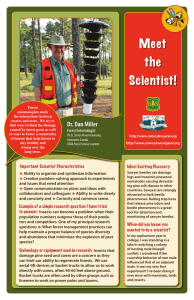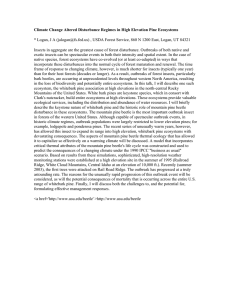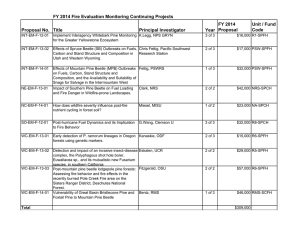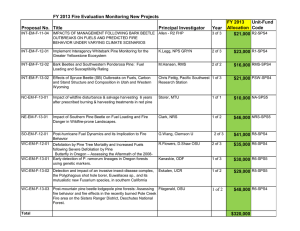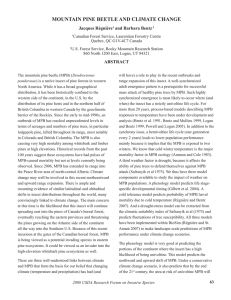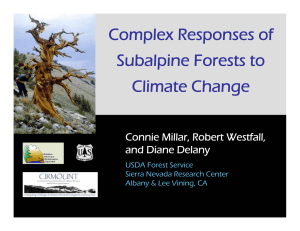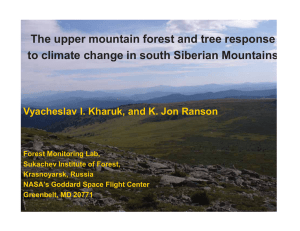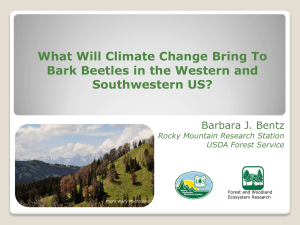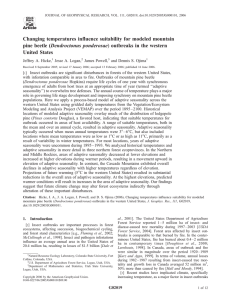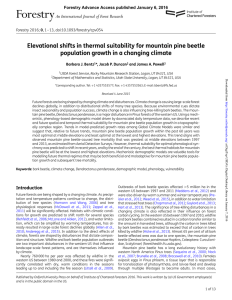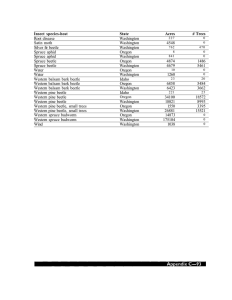Climate Change Altered Disturbance Regimes in High Elevation Pine Ecosystems
advertisement
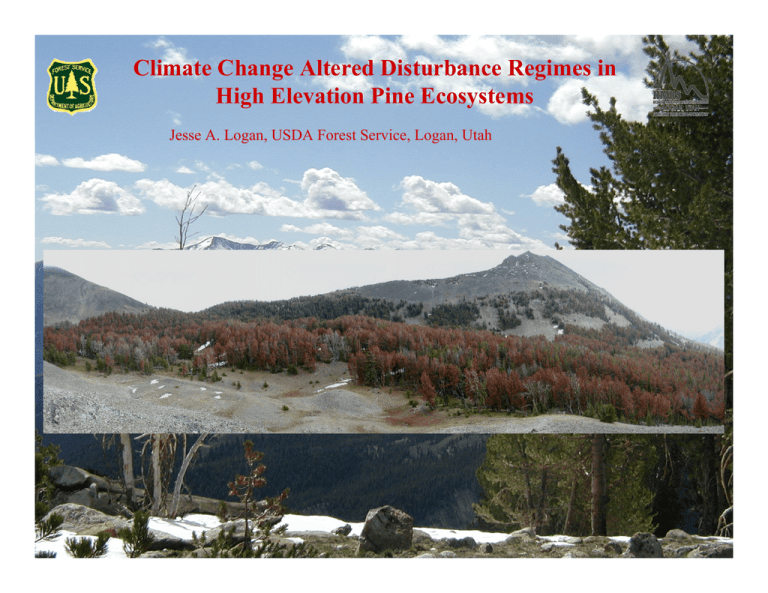
Climate Change Altered Disturbance Regimes in High Elevation Pine Ecosystems Jesse A. Logan, USDA Forest Service, Logan, Utah Ecological Amenities and Services The forest area impacted by insects and pathogens is approximately 45 times that of fire, with an economic impact that is almost 5 times as great. Dale VH, Joyce LA, McNulty S, et al. 2001. Climate change and forest disturbance. BioScience 51: 723-34. Elevation - Voltinism Whitebark Pine Spruce/Fir Lodgepole Pine RRR – Study Site > 1270 yr. old Dana Perkins Model for Adaptive Seasonality (1) G-curve has an intersection (Synchrony) (2) Winding Number =1 (Univoltione) (3) G-curve Intersection is at an appropriate time of year (Seasonality) If any one of these conditions are violated, Then it is not an adaptive seasonality Railroad Ridge S. site 1996 Logan, J. A., P. V. Bolstad, B. J. Bentz, & D. L. Perkins. 1995. Assessing the effects of changing climate on mountain pine beetle dynamics. pp. 86-108 In Hain, F. P., S. M. Salom, W. F. Ravlin T. L. Payne, K. F. Raffa (eds.) Proceedings, IUFRO Conference, Scolytid bark beetles: behavior, population dynamics, and control of forest insects, Maui, Hawaii, Feb., 1994. Logan, J. A., and B. J. Bentz. 1999. Model analysis of mountain pine beetle seasonality. Environ. Entomol. 28: 924-934 JA Logan and JA Powell. 2001. Ghost forests, global Warming and the mountain pine beetle. Environ. Entoml. 47: 160-173. MPB in High Elevation Ecosystems 2003 2001 Snowbank Mt. 8,000 ft. 2004 2003 Railroad Ridge 10,000 ft. 2004 2004 – Photo: Jeff Hicke Sylvan Pass YNP 1993 Change in Mean Ann. T ºC BRADLEY ET AL. 2004. AMERICAN CORDILLERA TEMPERATURE CHANGES. GEOPHYSICAL RESEARCH LETTERS, VOL. 31, L16210 – Average of Seven coupled atmospheric-ocean GCMs. The plots show the difference between the control Simulations and simulations with a CO2 doubling scenario Change in Mean Winter T ºC Change in Mean Summer. T ºC MONTANA WYOMING IDAHO Basic Issues/Key Questions For Native Insects in Historical Host Association How unusual are the events we are seeing? IUFRO – Maui, Hawaii - February, 1994 Something Outside Our Experience Appears To be Going On CONCLUSIONS 1. Physiologically based model predicted shift from hostile to benign thermal habitat 2. Unprecedented outbreaks accompanied series of warm years 3. Outbreak characteristic of invasive native species 4. Coupled GCM predict exceptionally sever warming at high elevation and at biologically sensitive time of year 5. Potential loss of ecological services and biodiversity 6. Time to begin formulation of effective management response
